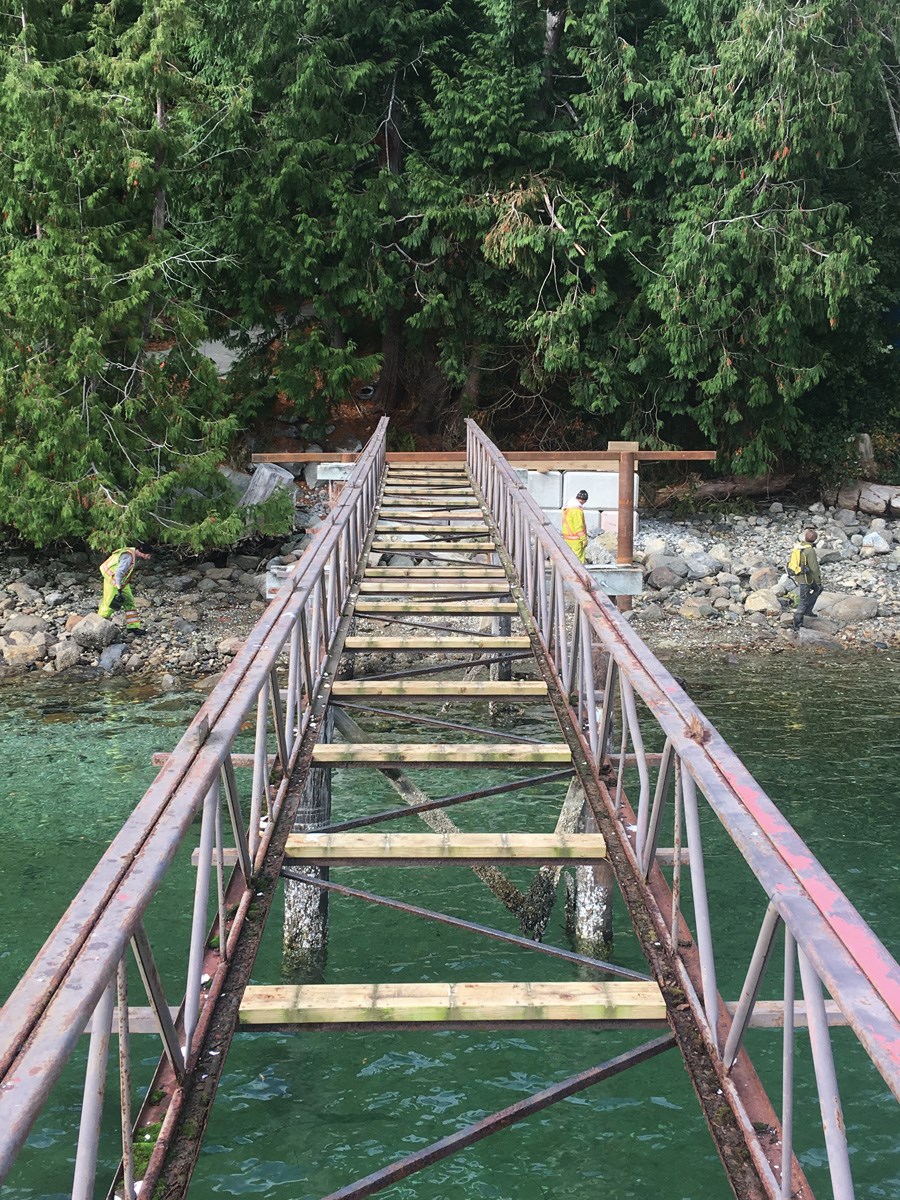The chair of the Pender Harbour Dock Management Plan (DMP) working group says the province missed an opportunity to make the DMP better, before rolling it out last week.
Leonard Lee said from the working group’s perspective the joint provincial-shíshálh Nation plan was finalized with no community consultation beyond discussions with former B.C. attorney general Barry Penner, who was tasked in 2015 with reviewing the process after opposition to the draft plan released earlier that year.
Lee said the working group felt there had been a promise of further consultation with both the public and the shíshálh Nation after Penner’s report came out, including giving the working group a chance to review the terms of reference for the environmental and archeological studies that support the DMP.
“I was surprised that we hadn’t had a chance to consult and improve the community relations between the band and the government and the people here in Pender,” he said. “It was an opportunity, and instead we missed it and got a done deal.”
Lee said some working group members were at a briefing last Friday from Ministry of Ministry of Forests, Lands, Natural Resource Operations and Rural Development (FLNRO) and shíshálh Nation officials.
“The government has offered to come up and meet with the dock management working group and discuss our concerns,” he said. “We’re actually hoping the government will engage with us on an ongoing basis and consider future changes to the policy.”
Several of the changes the working group would like to see are around the section that lays out dock construction and maintenance guidelines.
Lee said the group feels they’re too restrictive, and don’t give engineers the flexibility to design systems that are both affordable and usable while addressing environmental concerns.
“We feel there should be an addendum that allows for exemptions where it’s impossible or unsafe to meet the requirements,” he said.
The working group also has questions about the environmental study. Lee said they would have liked it to look beyond the impact of docks alone and that there should be a commitment to a series of ongoing studies and a willingness to make changes to the DMP to account for new information that comes forward.
“Good policy accepts that fact that you do a best effort at putting methods, procedures and practices in to solve the problem. But you’ve got to try them in the real world and see if they work and you’ve got to be prepared to go back and adjust them when they don’t,” he said.
The need to clear up the issues leading to the dock construction moratorium in Pender Harbour was reinforced in the 2016 reconciliation agreement between the province and the shíshálh Nation.
But Lee said some of the Penner report’s recommendations in that area were overlooked, including making more information about archeological sites public.
“[Penner] recommended efforts be made to increase public awareness and understanding of the significance of Pender Harbour archeological sites,” Lee said. “This was never done, and it would go a long way to improving community understanding and support. It would allow us to better appreciate the significance of the area, and also get to understand the members of the shíshálh Nation.”
The other recommendation was that the B.C. government make a better effort to explain the goals and practical implications of reconciliation.
Lee said, with initiatives like the DMP, “We don’t think it should abrogate [the province’s] obligation to consult with those of us who are impacted.”
Lee also acknowledged that there’s work to do after the “hurtful comments based on racism” made during some of the most heated moments at points in the debate over the plan.
“I think we as responsible leaders need to carry on talking. By showing friendship and understanding at the leadership level we can set an example for others to follow and we need to continue to do that,” he said. “I’d like to work with the band and the government to keep talking and demonstrate that we can talk and work through these things together.”



